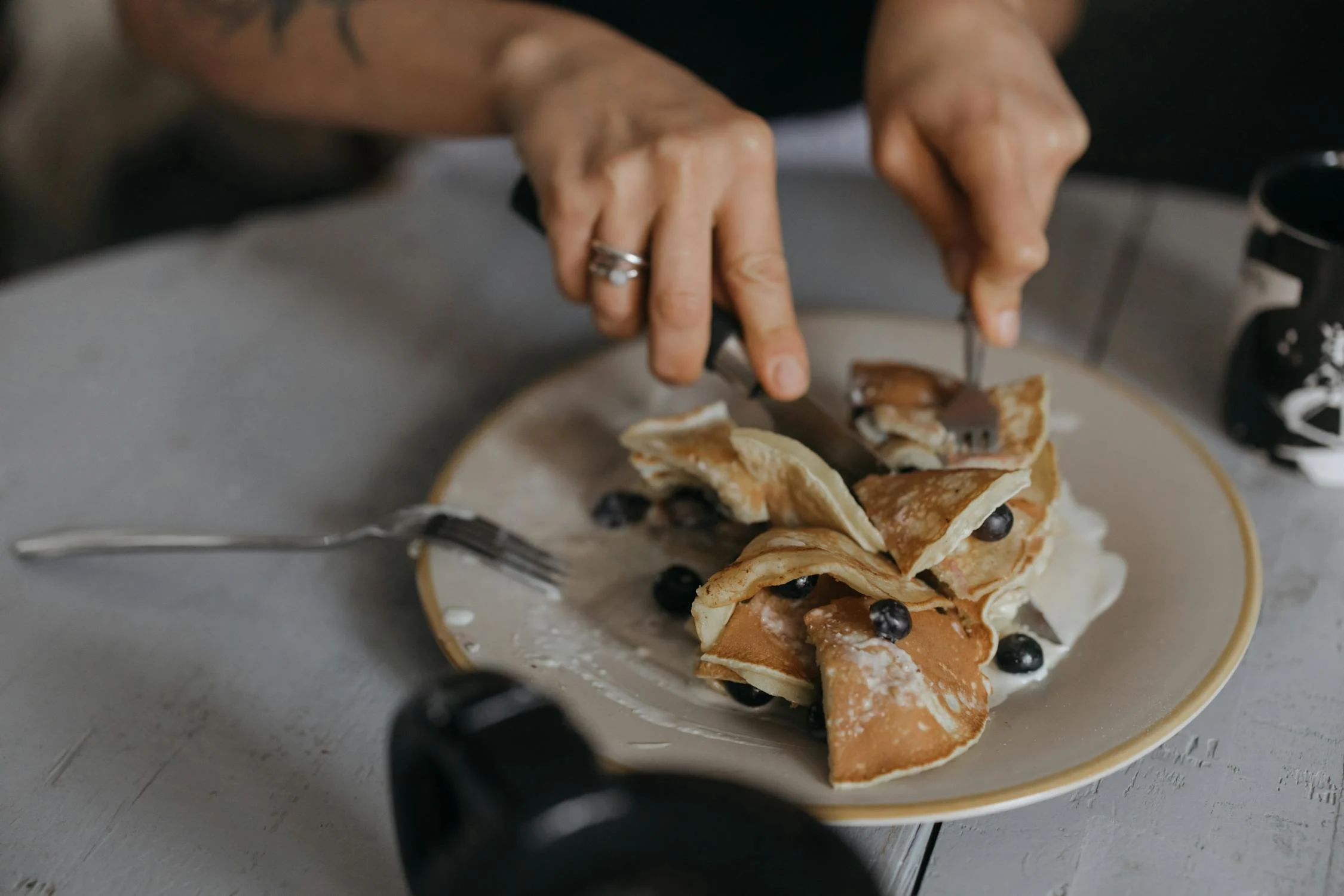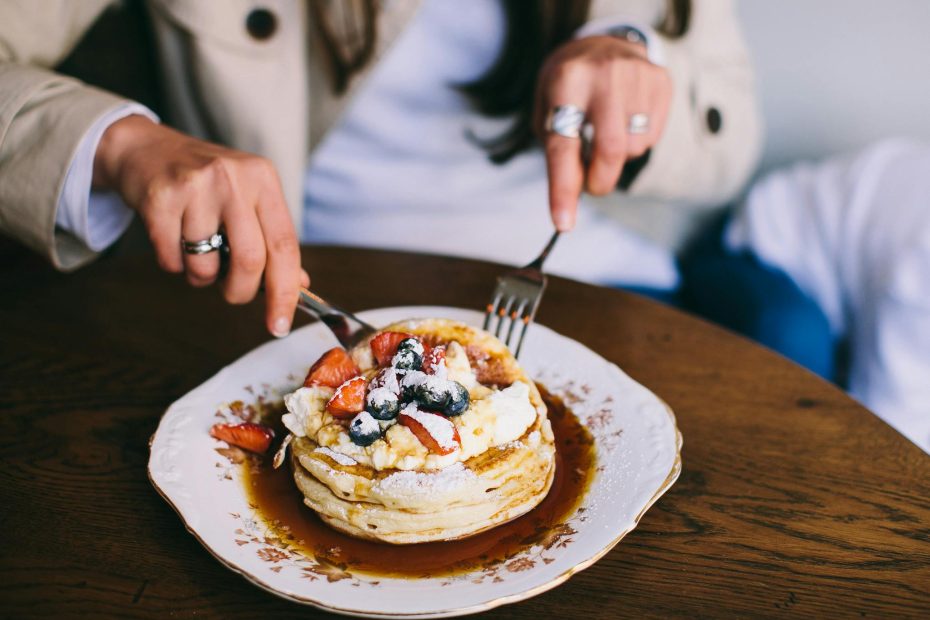🌪️ When Food Feels Like a Hug: Where It All Begins
You know those days that feel endless? Your boss was rude, bills are piling up, your phone won’t stop buzzing, and it seems like the whole world is asking for more than you can possibly give. Your head spins, your chest tightens… and suddenly, without even noticing, you’re standing in front of the fridge looking for “something.”
Maybe it’s chocolate. Maybe that pack of cookies. Or an entire pizza — why not? And for a few minutes, everything feels calmer. More bearable.
This scene is more common than you might think — and it has a name: emotional eating.
🔍 Eating Out of Anxiety Isn’t Weakness — It’s About Survival
First things first, let’s bust a dangerous myth: eating because of anxiety does not make you weak, lazy, or lacking in willpower.
In fact, it’s your brain’s very clever (though not always helpful) way of regulating overwhelming emotions.
When we feel anxious, stressed, or sad, our body releases a flood of stress hormones like cortisol and adrenaline. In response, foods rich in sugar, fat, or simple carbs trigger the brain’s reward system, releasing dopamine — the “feel-good” chemical.
👉 The result? Food becomes a kind of emotional anesthetic.
⚠️ The Vicious Cycle: Anxiety, Food, Guilt… Repeat

The problem isn’t occasionally finding comfort in food. The problem starts when this becomes an automatic, exhausting cycle:
-
Anxiety shows up.
-
You turn to food for relief.
-
You feel momentary comfort.
-
Soon after comes guilt, shame, and harsh self-criticism.
-
These feelings increase anxiety… leading you back to food.
🔁 And so the cycle continues, draining your energy, your self-esteem, and most importantly — your peace of mind.
🧠 Why Does This Happen? Spoiler: It’s Not About Willpower
The root of emotional eating goes far beyond what’s on your plate. It’s a mix of several factors:
-
Chronic stress and mental overload.
-
Beliefs that food is the only accessible source of comfort or pleasure.
-
Lack of emotional regulation skills, often unlearned in childhood.
-
Cultural conditioning that teaches “food makes everything better” (who hasn’t heard “have a treat, you’ll feel better”?).
-
Emotional fatigue and burnout.
Sometimes, it’s also a reaction to excessively restrictive diets that lead to deprivation, making food even more emotionally charged with desire — and guilt.
❤️ Breaking the Cycle: The Solution Is Not Restriction — It’s Connection
The good news? You can change your relationship with food.
But here’s an important truth: it’s not about tightening control, punishing yourself, or following yet another ultra-restrictive diet.
✨ It’s about reconnecting with your body, your emotions, and your real needs.
🔑 Realistic Strategies to Break Free from Emotional Eating
🔸 1. Name What You Feel
It sounds simple, but it’s powerful. Ask yourself:
-
“Is this physical hunger or emotional hunger?”
-
“What do I truly need right now? Rest? Comfort? A break?”
Sometimes, just naming it — “I feel anxious”, “I feel overwhelmed” — takes the autopilot off and brings awareness.
🔸 2. Practice Self-Compassion
If you ate because of anxiety, don’t beat yourself up. Don’t punish yourself with restrictive fasting or excessive workouts.
Breathe. Observe. Learn from the episode — without harming yourself further.
🔸 3. Build Other Micro-Comforts
Ask yourself: “Besides food, what else brings me comfort, pleasure, or relief?”
It could be:
-
Listening to a calming playlist.
-
Taking a long, hot shower.
-
Watching a feel-good show.
-
Going for a gentle walk.
-
Meditating, drawing, or simply lying on the floor and breathing deeply.
💡 Bit by bit, you teach your brain that food is one option, but not the only one.
🔸 4. Notice Your Emotional Triggers
Pay attention to the moments that usually trigger your emotional hunger:
-
End of the workday?
-
Family conflicts?
-
Feeling lonely?
-
Scrolling social media and falling into the comparison trap?
When you know your triggers, you can prepare for them with healthier coping strategies.
🔸 5. Ditch the Nutrition Terrorism
Eating doesn’t have to be a battlefield. Eating cake doesn’t make you a failure. Eating chocolate doesn’t mean you’re out of control. Food is just food. The emotional meaning comes from us.
🍽️ Intuitive Eating: The Way Back Home (To Yourself)
Intuitive eating is a framework that helps you reconnect with your internal cues — hunger, fullness, satisfaction, and pleasure — instead of following rigid food rules and restrictions.
Its principles include:
-
Unconditional permission to eat.
-
Rejecting the diet mentality.
-
Honoring hunger and respecting fullness.
-
Focusing on well-being, not perfection.
It’s not a diet. It’s a homecoming to yourself.
🏥 When Should You Seek Professional Help?
If you feel like food has become your only emotional regulation tool — and it’s causing distress, isolation, or affecting your mental and physical health — it’s absolutely okay (and brave) to seek help.
Professionals who can help:
-
Nutritionists specializing in mindful or behavioral eating.
-
Therapists, especially those trained in Cognitive Behavioral Therapy (CBT), Acceptance and Commitment Therapy (ACT), or Compassion-Focused Therapy (CFT).
Asking for help isn’t weakness. It’s an act of courage.
🌸 Final Reflection: Food Was Never the Problem — And You Were Never the Mistake
If you’ve made it this far, take a deep breath and remember:
You are not broken. You are not a failure. You are not flawed because you reached for a piece of chocolate, ordered a pizza, or needed comfort through food on a hard day.
The problem was never the chocolate. And it was never you. The problem is a society that taught you that self-care means dieting, that discipline means deprivation, and that self-love only exists if you shrink your body.
But here’s the truth:
Self-love doesn’t fit into numbers. It fits into the space where you allow yourself to exist, to feel, to care, and to nurture — in the body you have today, exactly as it is.
✨ Conclusion: Eat With More Love, Not More Guilt
Food can — and should — be comfort, celebration, connection, and joy. And all of that is perfectly healthy, as long as it’s not the only way you soothe yourself.
The solution isn’t fighting your plate or punishing your body. It’s building a relationship of respect, trust, and kindness with yourself.
And if you need to hear this today:
You don’t have to be perfect. You only have to be gentle with yourself. 🌷
